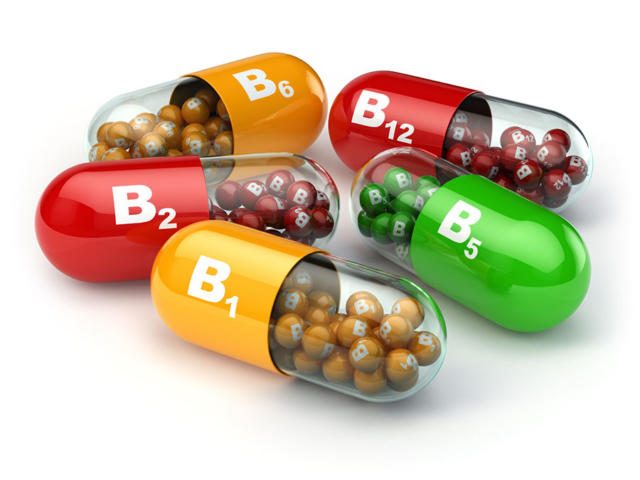Maintain a balanced diet making sure to consume the right vitamins. This is essential for the body to function properly and to prevent cognitive decline.
It is worth noting that “there are 13 essential vitamins for the normal functioning, growth and development of cells”, details the United States National Library of Medicine. Vitamins are found naturally in food, so it is important what we put in our mouths.
“You have the power at the end of your fork”, Uma Naidoo, a nutritional psychiatrist at Harvard University School of Medicine, tells BBC Mundo. Dr. Naidoo is the author of “This Is Your Brain on Food”. This is a guide with foods you can eat to help your mental health, the most harmful ones and the ones you should try to avoid.
For the specialist, there is a key vitamin to keep our brain young and healthy. Below is an interview with expert Uma Naidoo, a nutritional psychiatrist at Harvard University School of Medicine.
What is the best vitamin to protect our brain from aging?
The best vitamin that covers many aspects related to brain health is vitamin B. There are several and each one has an important function for the brain.
Why vitamin B? What is so special about this vitamin?
There are 8 types of B vitamins. Vitamin B-1, called thiamin, helps with basic cell functions and the metabolism of different nutrients to help us get energy. A low level of thiamine can lead to poor cognitive function, as well as other problems in the body.
Vitamin B-12, or cobalamin, is essential for the formation of red blood cells and DNA, but it also supports the nervous system, brain development and function. She does more specific things like help break down homocysteine. It is a protein that is harmful to the heart, and can also lead to some type of dementia.
B vitamins and benefits for the brain
B1(thiamin). It is crucial for basic cell function and metabolism of nutrients for energy.
B2(riboflavin). It produces energy and breaks down fats and foreign materials such as medicines.
B3(niacin). It works with enzymes to produce cholesterol and fat needed by the body. It is also an antioxidant.
B5(pantothenic acid). It helps enzymes build and break down fatty acids for energy.
Favorite vitamin
One of my favorites, and the one I talk about all the time, is vitamin B-9, which is folic acid. It helps with optimal neurotransmitter function and brain health, aids in DNA formation, and promotes cellular detoxification. A low level of folic acid is associated with low mood. So just by eating green leafy vegetables, which are often rich in the natural vitamin B-9 folic acid, you maintain good mood and emotional health.
These are just the most common factors of some of the B vitamins and they are essential elements for our mental and cognitive health.
Salmon dish
Salmon is rich in vitamin B. Getty Images
Are all B vitamins good for the brain?
They have different benefits beyond the brain, but they all have some element that helps you. That is why when they ask me, I always answer that the B vitamin is the one I choose and recommend.
Some are more directly related to the brain, such as vitamins B-12, B-9 and B-1. And others help with other much-needed body functions, like the formation of blood cells. So, directly or indirectly, they are related to brain function; green leafy vegetables, the greener the better, because they are rich in folic acid.
Uma Naidoo
Nutritional psychiatrist from Harvard University School of Medicine
Where can we find B vitamins?
We find them in many different foods. I like to help people by giving them mnemonic exercises [a short, easy-to-remember sentence that helps put words together]. This is not the complete list, but it helps. Then it occurred to me: B.I.G. Y.E.S.S. [a big yes].
The letter B is the initial of beans in English that means grains and that includes beans, lentils, legumes, etc. These are rich in vitamin B. G is for greens (vegetables). It groups all the different types of green leafy vegetables; the greener the better, because they are rich in folic acid. And it is for dairy yogurt, which contains riboflavin, which is vitamin B-2, and it also contains vitamin B-12. Always choose the natural type of yogurt. There is even non-dairy yogurt that has these vitamins. So look it up. E is the first letter of eggs. If you do eat eggs, I always suggest buying grass fed eggs. They are very rich in vitamin B-7, which is biotin. The first S is for salmon. Many people know that salmon is rich in B vitamins, which includes vitamin B-2 or riboflavin, vitamin B-3 or niacin, vitamin B-6 or pyridoxine, and vitamin B-12 or cobalamin. They all help the brain. And the other S is for sunflower seeds. These are one of the richest sources of vitamin B-5, which is called pantothenic acid.
20% of the recommended daily value of that vitamin can be obtained from just one ounce (28 grams) of these seeds. It is easy to add them to a salad or a drink to get that vitamin and add it as part of your diet.

B vitamins and benefits for the brain
B6 (pyridoxine). It prevents illnesses. Adequate levels of this vitamin are associated with a lower risk of cancers.
B7 (biotin). It regulates cell signals for fast and efficient communication in the body and brain.
B9. It is key to maintaining brain and neurological health, neurotransmitters and balanced psychological health.
B12 (cobalamin). It is essential for the formation of red blood cells and DNA. It also helps the development and function of the nervous system.
What is the recommended daily amount of vitamin B to help our brain health?
When it comes to foods, we are not always completely sure of the exact dosages of vitamins that they contain. And this is where I like to talk about a healthy whole-food diet that is balanced.
The microbiome of all of them is completely unique. Try to include foods in a healthy and balanced diet. Do not just eat beans, do not just eat green leafy vegetables, because then you’ll lose the other seven B vitamins by ignoring them.
On the internet, you can find the different B vitamins and the recommended daily amounts. In the United States we use the Recommended Dietary Allowances (RDA).
Bowl of yogurt withblueberries
Are there any disadvantages in consuming vitamin B?
It is important to know what should be consumed within the recommended amounts. Your body absorbs as much as it needs, and the rest will pass through your urine.
When it comes to vitamins, believing that eating or drinking something extra will help you more is often a myth. Use the recommended amount and eat a healthy diet. Some of the excesses of different vitamins, not just vitamin B, can have side effects. It is important to be careful.
What would you recommend your patients eat?
The first step is to understand the symptoms the person is experiencing, what kinds of foods they like to eat and what they do not. Often in that conversation I end up understanding something about them, like certain foods they rely on that may not be as healthy.
A great example is yogurt which has probiotics and offers great benefits. Blueberries are good too. But a blueberry yogurt is not the healthiest option. This is because many fruit yogurts have an extreme excess of added sugars, which is not healthy for your brain. It is much healthier to take a bowl of yogurt and add frozen or fresh blueberries, sweetened with a little cinnamon, a touch of honey and eat it that way.
If you do not eat shellfish, eggs, or dairy, then look for alternatives. A great source of vitamin B-12 for vegetarians is nutritional yeast. In the end, you have the power in your fork.
Is there any additional advice for our guests?
I always like to say 2 things for my patients:
1. Eat the orange; do not buy the box of orange juice because the orange has the skin, the fiber, the nutrients of the vitamins, the minerals that you need. Orange juice often has a ton of added sugar and the fibers removed, making it a less healthy version.
2. You have the power at the end of your fork. That is something that is under your own control and it is very powerful that you know it.

